On May 20, 2019, the same day that the University Hospital in Reims stopped Vincent Lambert’s nutrition and hydration, CNEWS (France) interviewed Alliance VITA’s General Delegate, Tugdual Derville, along with Dr. Denis Safran, and journalist, Marie Aubazac.
The following quotes are some of the verbatim excerpts from the broadcast.
“When the promoters of euthanasia want to introduce this practice in a country, they use the case-study of someone seriously ill, at the end of life, and with a personal request for hastened death. There are none of these three criteria in Vincent Lambert’s case. He is not at the end of his life. At least, until now, he has not been at the end of his life… We all remember that in 2013, he already survived during 31 days without food, and with only very small quantities of water… “
“His parents have continually requested that he be transferred, to a specialized health unit, not to a palliative care unit for persons at the end of their life. Patients like Vincent are not in a coma, they are in a neuro-vegetative or pauci relational state where the person wakes up, falls asleep, and has impervious expressions. There are videos showing Vincent actually following with his eyes objects around him. “
“This kind of situation is horribly trying for the family, on both sides of the issue. The conflict in Vincent’s family originated when his nutrition was stopped without warning his parents, who realized what was going on twenty days later! They had a good reason to be angry!”
“You mentioned the word ‘euthanasia’, I can see that this word creates a lot of anxiety among the members of the family, the loved ones, and all the caregivers who look after approximately 1,700 other patients in France, either in specialized care units or at home. And they are wondering: what’s the message from our society? Does this mean that a heavily dependent person, so seriously disabled, should be helped to die?”
“We are not talking about unplugging a machine – Vincent Lambert is not connected to any machine whatsoever. He has undergone a minor surgical procedure to put a gastrostomy tube in place to feed him. Do we call this inappropriate or unreasonable obstinate care, when this is just keeping Vincent alive? “
“I would like French President Macron, who is known to have an attentive disposition for disabled people, and French Minister, Sophie Cluzel, who has a disabled child, to give a message of comfort to those heavily dependent persons. This is nothing less than a social issue.”
“Public representatives must be moral references, because the way we treat the most vulnerable individuals reveals how we see ourselves. Beyond Vincent Lambert, who has unwillingly become an emblematic figure, lies the issue of vulnerability. This issue is crucial for our society.”
“You mention the advance directives: Alliance VITA encourages people to write their advance directives, and we have published an informational leaflet, to help people do so. However, I have often observed that when a person becomes dependent, his opinion may vary and be in contradiction with what he previously expressed. “
“We definitely agree that it is perfectly legitimate to avoid unreasonable obstinacy or disproportionate treatment; but we remain opposed to any decision or act of killing an individual. There are ambiguities on this issue. Until now, Vincent was not at the end of his life, but today, he is being pushed into facing the end of his life, due to decisions which disrupt vital organs which have been functioning correctly… And this is done to make him die without ever pronouncing the word ‘euthanasia’. Don’t you think it is ambiguous?”
“Remember that over 40 doctors who are specialized in this type of pauci-relational care have concluded that Vincent’s nutrition and hydration should continue. Neurologist and Professor Xavier Ducrocq, diagnosed Vincent Lambert as being in a pauci-relational state. As it stands, medical professionals voice conflicting opinions in this case.


![[Press release] – Alliance VITA’s UDV Bioethics Conference returns in January 2023](https://www.alliancevita.org/wp-content/uploads/2022/12/Article-CP-Alliance-VITA-400x250.jpg)
![[CP] – Citizens’ Convention on the End of Life: Alliance VITA will Take Part Guilelessly](https://www.alliancevita.org/wp-content/uploads/2022/12/CP-Convention-citoyenne-fin-de-vie-400x250.jpg)
![[CP] – Abortion in the Constitution: A Confiscated Debate Far from Reality](https://www.alliancevita.org/wp-content/uploads/2022/07/avortement-constitution-décryptage-400x250.jpg)
![[Press Release]: Abortion Prevention Policy Urgently Needed](https://www.alliancevita.org/wp-content/uploads/2021/01/PPL-IVG-400x250.jpg)
![[Press Release] – The Ethics Committee’s Blatant Contradiction on Palliative Care, Assisted Suicide and Euthanasia](https://www.alliancevita.org/wp-content/uploads/2022/04/FA-header-CCNE-400x250.jpg)
![[Press Release] – Calling for Insurance Companies, to Consider Their Duty of Discretion Rather than Pushing Euthanasia](https://www.alliancevita.org/wp-content/uploads/2015/03/fin-de-vie-280x250.png)

![[Press Release] Alliance VITA’s Response to the 2021-2024 Palliative Care Plan](https://www.alliancevita.org/wp-content/uploads/2017/12/soinspalliatifs-1-400x250.jpg)

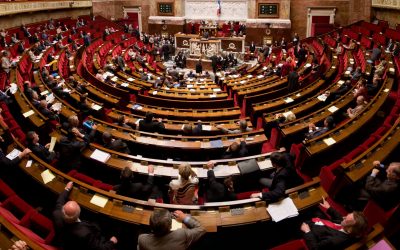



![[Press Release] URGENT: Judge Orders Mediatransports to Resume Alliance VITA’s Advertising Campaign](https://www.alliancevita.org/wp-content/uploads/2020/01/Mediatransport-handicap-et-paternité-400x250.jpg)
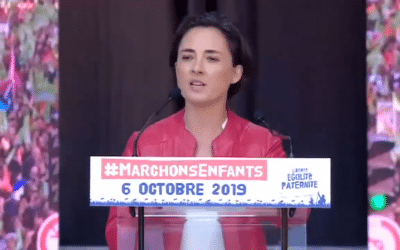


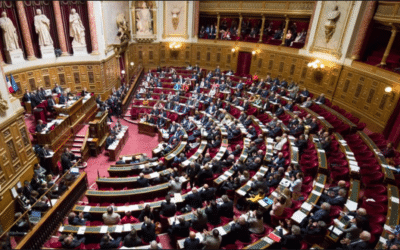
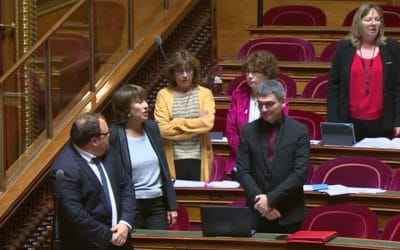

![[Press Release] European Elections: VITA Focuses on Fragile Generations](https://www.alliancevita.org/wp-content/uploads/2019/05/generations-fragiles-1-400x250.jpg)

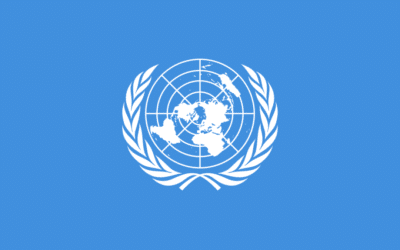
![[Press Release] Following Wide-Scale Public Debates: French Opinions on Revising Bioethics Law](https://www.alliancevita.org/wp-content/uploads/2019/06/pma-2-400x250.jpg)
![[Press Release]: Alliance VITA Beckons European Electoral Candidates to Focus on Vulnerable Generations](https://www.alliancevita.org/wp-content/uploads/2018/04/caroline_roux-1-400x250.png)
![[Press Release] New Death Sentence for Vincent Lambert by French Court Order](https://www.alliancevita.org/wp-content/uploads/2019/04/conseildetat-1080x675-1-400x250.jpg)









![[Press Release]: Alliance VITA Denounces Attempt to Abolish Conscience Clause in French Health Bill Reform](https://www.alliancevita.org/wp-content/uploads/2019/03/objectiondeconscience-1080x675-1-400x250.jpg)
![[Press Release] Parliament’s Report on Bioethics: Tumultuous Propositions which Undermine Human Rights](https://www.alliancevita.org/wp-content/uploads/2019/01/bioethique-2-400x250.jpg)
![[Press Release] Alliance VITA Announces 2019’s Bioethics Conference on « The Value of Life »](https://www.alliancevita.org/wp-content/uploads/2018/12/udv2019-1080x675-1-400x250.jpg)

![[PR] Keep Your Hands Off My Daddy: counter demonstrations in 17 cities](https://www.alliancevita.org/wp-content/uploads/2018/11/touchepasamonpere-tugdualderville-1080x675-1-400x250.jpg)
![[Press Release] "Keep Your Hands Off My Daddy!" Campaign Launched](https://www.alliancevita.org/wp-content/uploads/2018/11/touchepasamonpere_ladefense-1080x675-400x250.jpg)
![[Press Release] Alliance VITA Will Launch National Campaign in November to Protect Children’s Best Interest](https://www.alliancevita.org/wp-content/uploads/2018/10/enfance-400x250.jpg)
![[Press Release] Court of Cassation / Surrogacy: Alliance VITA Speaks Out](https://www.alliancevita.org/wp-content/uploads/2018/10/courdecassation-1080x675-1-400x250.jpg)
![[Press Release] French Bioethics Law: CCNE Ignores Ethics](https://www.alliancevita.org/wp-content/uploads/2018/09/ccne-1080x650-400x250.jpg)

![[Press Release] French Bioethics: State Council Favors Individual Interests vs. Children’s Rights!](https://www.alliancevita.org/wp-content/uploads/2018/07/enfant-triste-1080x675-1-400x250.jpg)
![[Press Release] ART and Children’s Rights: A warning from Alliance VITA](https://www.alliancevita.org/wp-content/uploads/2018/06/action-12-juin-5-1080x675-400x250.jpg)
![[Press Release] French Bioethics: Warning against commodification of the human body](https://www.alliancevita.org/wp-content/uploads/2018/06/egb-1080x675-1-400x250.jpg)
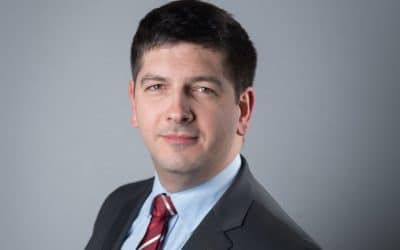
![[Press Release] Clandestine Showroom for Reproductive Techniques (ART) Opens in Paris](https://www.alliancevita.org/wp-content/uploads/2018/04/showroom_vita-1080x675-1-400x250.jpg)
![[Press Release] Euthanasia Disguised as Healthcare in France!](https://www.alliancevita.org/wp-content/uploads/2018/04/cese_findevie-1080x675-1-400x250.jpg)
![[Press Release] Euthanasia: Alliance VITA Protests Attempts to Force Laws Through](https://www.alliancevita.org/wp-content/uploads/2018/01/euthanasie-1-1080x675-1-400x250.jpg)
![[Press Release] National Consultations on Bioethics in France: Alliance VITA’s Agenda](https://www.alliancevita.org/wp-content/uploads/2018/01/bioethique-1080x675-1-400x250.jpg)
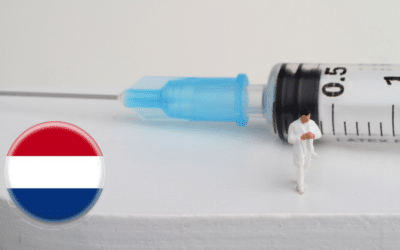
![[Press Release] « Anticipate before Dying »: Alliance VITA’s awareness campaign](https://www.alliancevita.org/wp-content/uploads/2017/10/anticipons-2-1080x675-1-400x250.png)
![[Press Release] MAP without a father: Alliance VITA involved in defense of children](https://www.alliancevita.org/wp-content/uploads/2017/09/PMAsansPere-1080x675-400x250.jpg)
![[Press Release]: Alliance VITA protests fatherless ART](https://www.alliancevita.org/wp-content/uploads/2017/06/Matignon-e1498662862342-2-400x250.jpg)
![Ethics Committee + ART: Convoluted and Non-consensual Announcement [Press Release]](https://www.alliancevita.org/wp-content/uploads/2017/06/PMAsansPere1-2-400x250.jpg)


